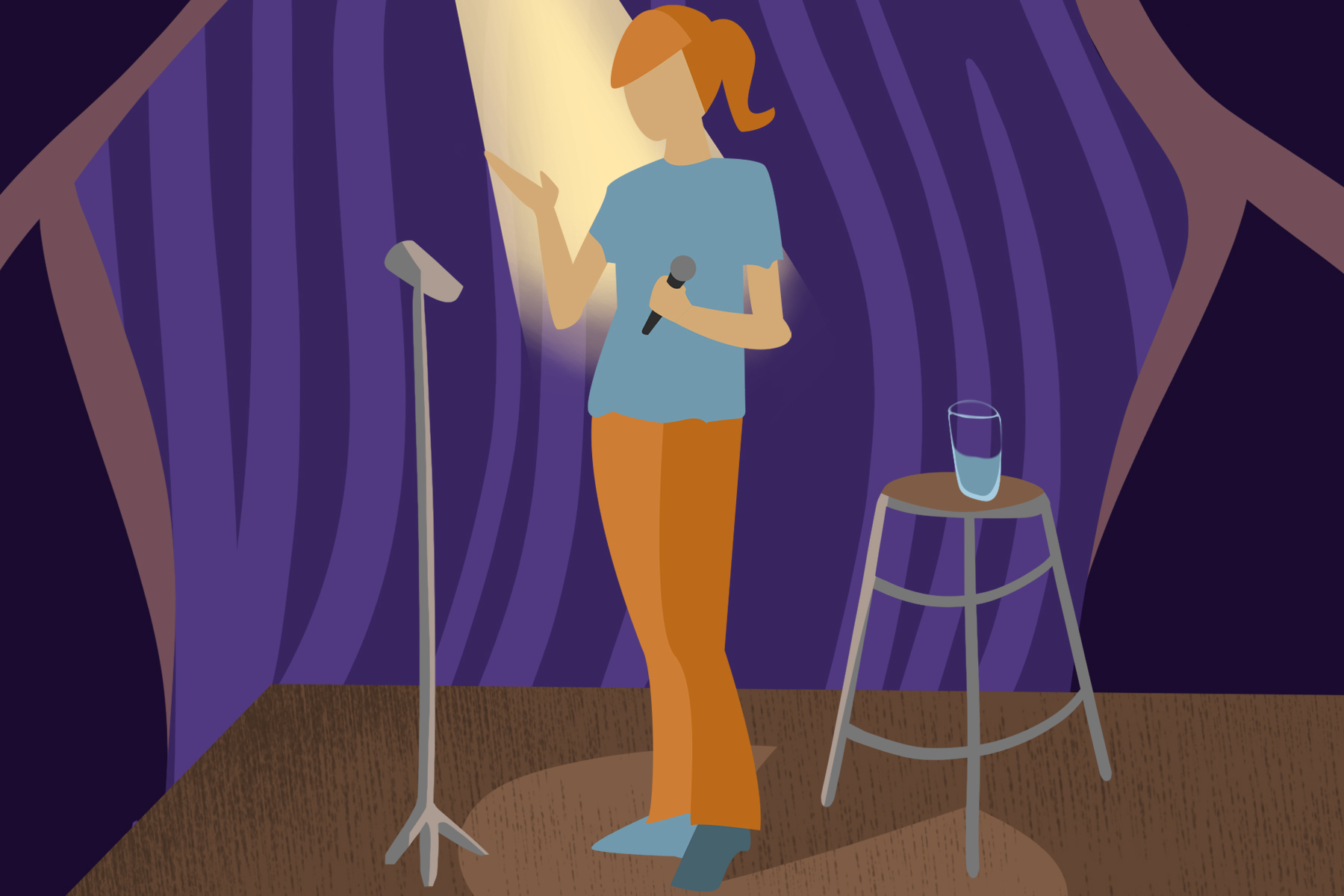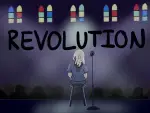It’s a phrase as old as comedy: “You’re either funny or you’re not.”
While there is certainly truth to that sage advice, it’s not exactly indicative of the life an up-and-coming comedian leads in 2021. This is especially true for college student comedians, who are often overlooked within the grand hierarchy of the comedy community. It is often said that comedy comes with experience, and those 18- to 23-year-olds hoping to be professional comedians are often severely lacking in this department.
However, there is hope for these budding comics. Being a college student at the same time brings with it numerous pathways to success in the comedy field that many “adults in the room” may not have access to.
Whether it be degree programs, student organizations or simply access to a library of alumni, college students possess unique resources that make their path to comedic stardom look potentially a lot different than your average open mic marathon typical of amateur comedians.
The Liberal Art(s) of Comedy
Many college student comedians have one major advantage over those who take on professional comedy via traditional methods — a performing arts department. In fact, a select few colleges have begun offering entire degrees in the comedic arts.
While some may groan at such a concept and proudly declare that such a program is a waste of money, others have been quick to defend it. Former “Full House” writer and director of Emerson College’s comedic arts major Martie Cook claims that programs such as hers have a lot more practical uses for those interested in pursuing a career in comedy.
“If you want to be a sitcom writer, we are going to take you through sitcom writing, and you will walk out of here with several scripts in your hand that you can then show to agents and producers, so you actually have a portfolio,” said Cook in an interview with the Boston Globe.
This feature of this academic track extends to stand-up and theatrical comedy as well. The various degree programs offered throughout the country feature courses such as “Performing Improv Comedy” and “Why Did the Chicken? — Fundamentals of Comedic Storytelling,” with the aim of not just being funny — but also to make students comfortable when performing and acting socially abhorrent in the name of comedy.
“Its purpose instead seemed to be getting students comfortable making fools of themselves, to embrace their inner clown,” wrote journalist Luke O’Neil while reporting on Emerson’s program.
While most professional comedians still claim that the best way to do comedy is to throw yourself at open mics and other forms of field work, a formal education in comedy is an opportunity that may be useful to many college students.
We’re All in This Together
While a degree in comedy might be suitable for those putting all their chips on a career in the field, others may want a more flexible and part-time opportunity to practice their joke-telling chops. Student organizations can fill this role, and the diversity of such groups can cater to anyone who wants to step into the world of comedy.
Want to practice stand-up comedy? Orgs like Iowa State’s Stand Up Comedy Club are here to help. Sketch comedy more your forte? Many schools have clubs similar to Ohio State’s Backburner Sketch Comedy Group. Maybe satire writing is your calling? Don’t fret, nearly every major university has a humor magazine to write for — from University of California, Berkeley’s “Heuristic Squelch” to Georgetown University’s “Georgetown Heckler.”
These organizations, groups and general mosh pits of student comedians serve to be not only a creative outlet for those pursuing a career in comedy, but also a way to bounce ideas off each other. The freeform and voluntary nature of most clubs allow for more liberal ideas, as well as more in-depth criticism.
Outside of the group itself, numerous events are put on by these organizations every year. Comedy groups from schools such as Arizona State, University of California, San Diego and Indiana University all throw numerous shows, contests and festivals annually for those who want to exhibit their comedic talents to the masses. You don’t have to be in a stand-up comedy group to receive the benefits of having them on campus.
It’s Called Networking
While degree programs and student organizations can help collegiate comics become skillful in the comedic arts, most college students agree that the key to professional success is networking.
Luckily, a number of universities have numerous notable alumni gracing the halls of comedic institutions across the country and world — and they are eager to hire those who share their collegiate stripes.
Pursuing that aforementioned comedic arts degree at Emerson College? Its alumni are notorious for being present in nearly every office that manages comedic talent. Actress and Emerson alum Quinn Marcus laments this in an article with The New York Times.
“Every single meeting I’ll go to in L.A., the person will tell me they wish they had gone to Emerson because they know someone who went there that they work with,” she said. “In every single office there is definitely an Emersonian.”
There are a few institutions that hold the most alumni wealth, though. New York University, for example, once taught comics such as Billy Crystal, Adam Sandler, Sarah Silverman and Alec Baldwin. Northwestern University is the source of television funnymen Seth Meyers and David Schwimmer. Of course, Harvard University hosts big names such as Conan O’Brien, Greg Daniels and B.J. Novak.
However, it’s not all about the names you see in the SNL intro. Comedy is a massive industry, and alumni of a select few colleges are the ones hiring and firing in the depths of the T.V. writer’s rooms and agent offices.
The message is clear: Attending a university (especially one with a comedy legacy) grants you access and opportunities with countless alumni across the globe.
To Each Their Own
Despite the numerous benefits and opportunities college comics have compared to those outside of the academic sphere, it’s still not a straightforward path to stardom. The experience of performing at open mics and being booed off stage will never be replaced. As such, these college conveniences are more like supplementary materials to those who wish to be the next Joe Rogan or Stephen Colbert.
Looking to define your college experience by the pursuit of comedy stardom? Check out College Magazine’s “Top 10 Colleges For Aspiring Comedians.”

















